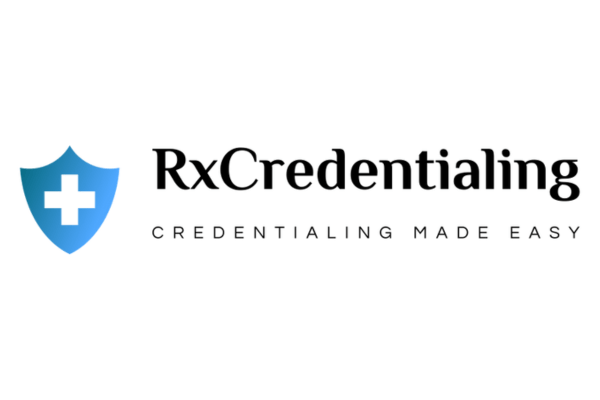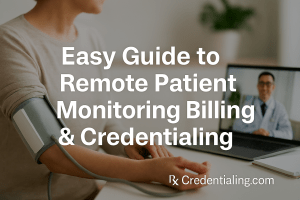In the complex world of healthcare, efficient billing practices stand as the backbone that supports medical service providers.
Introduction
Without a streamlined process for billing for medical services, healthcare facilities risk facing financial instability, which can ultimately compromise patient care.
However, navigating the intricacies of medical billing can be a daunting task for medical practitioners and healthcare administrators alike.
The challenges are multifaceted, from understanding the ever-evolving codes and regulations to dealing with insurance companies and ensuring timely reimbursements.
This guide aims to demystify the medical billing process, presenting an informative yet persuasive narrative to help medical professionals and administrators establish a more efficient, error-free billing system.
By addressing common challenges and offering actionable solutions, we strive to improve the financial health of medical practices and, consequently, enhance patient satisfaction.
Understanding Medical Billing
Basics of Medical Billing
The medical billing cycle is a complex process that involves multiple steps: patient check-in, coding of services, claim submission, insurer response, and payment processing.
Each step is crucial and requires meticulous attention to detail to ensure that services are billed accurately, and reimbursements are received timely.
Understanding this cycle is fundamental for anyone involved in the healthcare industry, as it directly impacts the financial health of the practice.
Common Medical Billing Terms
To navigate the world of medical billing, one must be familiar with its language. Terms such as
ICD codes (International Classification of Diseases), which are used to classify diagnoses and health conditions, and
CPT codes (Current Procedural Terminology), which relate to the services provided, are essential in crafting accurate medical claims.
Additionally, understanding an Explanation of Benefits (EOB),
A document provided by insurance companies detailing what they will cover, is crucial for reconciling accounts and addressing any discrepancies.
Roles and Responsibilities
The roles of medical practitioners and healthcare administrators intersect significantly in the billing process.
While practitioners are responsible for providing accurate and detailed descriptions of the services rendered, administrators must ensure that these services are correctly coded and billed.
Collaboration and clear communication between these roles are paramount to a successful billing process, reducing errors and streamlining the path to reimbursement.
Challenges in Medical Billing
Common Challenges
Medical billing is fraught with challenges that can lead to claim denials, payment delays, and financial strain for healthcare providers.
Coding errors are a prime culprit, often due to outdated knowledge or simple human error.
Furthermore, navigating patient eligibility and insurance requirements can be a minefield, leading to denied claims if not handled correctly.
These challenges not only affect the financial cycle but also the time that staff can dedicate to patient care.
Impact on Practices
The repercussions of inefficient billing practices extend beyond mere financial losses.
They can tarnish the reputation of medical practices, lead to patient dissatisfaction due to billing errors or unclear billing communications, and result in high employee turnover as staff become frustrated with complex and inefficient billing processes.
Addressing these challenges head-on is crucial for the sustainability and growth of healthcare services.
Common Challenges in Medical Billing
| Challenges | Description |
|---|---|
| Coding Errors | Mistakes in assigning codes for diagnoses and procedures, leading to claim denials or underbilling. |
| Insurance Requirements | Complexities in understanding and meeting insurance company policies and eligibility criteria. |
| Staff Frustration | High employee turnover and dissatisfaction due to cumbersome billing processes and errors. |
Best Practices for Efficient Medical Billing
Up-to-date Coding
Staying current with coding standards is imperative for the accuracy of billing and minimizing claim rejections.
Medical practices should regularly update their coding manuals and provide continuous training to their billing staff.
This includes being abreast of changes in ICD codes and CPT codes, which are frequently updated to reflect new technologies, procedures, and health conditions.
Utilizing the latest codes ensures that claims are compliant with insurer requirements, leading to faster reimbursements.
Clear Patient Communication
Clear communication with patients regarding their bills and insurance benefits can significantly reduce billing errors and improve patient satisfaction.
Practices should strive to explain charges, co-pays, deductibles, and out-of-pocket expenses transparently before services are rendered.
This proactive approach helps prevent misunderstandings and disputes, fostering a trusting relationship between patients and healthcare providers.
Regular Training and Auditing
Continuous education and periodic auditing of the billing process are crucial for identifying and rectifying errors.
Regular training sessions for the billing staff on the latest billing practices, software, and regulations can enhance their efficiency and accuracy.
Additionally, conducting routine audits of billing procedures helps uncover any discrepancies or patterns of errors, allowing for timely corrections and improvements.
Best Practices for Efficient Medical Billing
| Best Practices | Description |
|---|---|
| Up-to-date Coding | Regularly updating coding manuals and providing training to billing staff to ensure compliance with coding standards. |
| Clear Patient Communication | Transparently explaining charges and insurance benefits to patients to reduce billing errors and disputes. |
| Regular Training and Auditing | Conducting continuous education and periodic audits to identify and rectify errors in the billing process. |
Leveraging Technology in Medical Billing
Billing Software Solutions
Investing in robust billing software solutions can streamline the entire billing process, from generating claims to processing payments.
These systems can automate routine tasks, reduce manual errors, and provide real-time insights into the financial performance of the practice.
Features such as electronic claim submissions, automated coding updates, and integrated EHRs (Electronic Health Records) can greatly enhance operational efficiency and financial accuracy.
Electronic Health Records (EHRs)
The integration of billing systems with Electronic Health Records (EHRs) is a game-changer for medical billing.
EHRs that seamlessly connect with billing software can help ensure that all billable services are captured and accurately coded.
This integration facilitates the automatic transfer of diagnostic and procedural information into billing claims, reducing the likelihood of missed charges or coding errors.
Automating Billing Processes
Automation can significantly improve the efficiency of medical billing processes. Automated systems can handle tasks such as verifying insurance eligibility, sending out billing reminders, and following up on unpaid claims.
By reducing the manual workload, staff can focus more on patient care and other critical aspects of practice management.
Streamlining Workflow for Billing Efficiency
Streamlining the workflow within a medical practice is vital for enhancing billing efficiency. This involves optimizing each step of the patient’s journey from appointment scheduling to post-visit billing.
By implementing a systematic approach, practices can minimize administrative errors, improve patient flow, and ensure accurate billing.
Appointment Scheduling and Verification
The billing process starts the moment an appointment is booked. Implementing a system that verifies patient insurance eligibility and informs patients of their expected contributions beforehand can reduce billing complications later on.
This proactive approach helps in setting clear expectations, thereby minimizing disputes and delays in payments.
Accurate Patient Check-In Procedures
During patient check-in, verifying personal and insurance information is crucial. Ensuring that all data is up-to-date and correctly entered into the system can prevent many billing issues down the line.
Additionally, clear documentation of the patient’s reason for the visit and any pre-existing conditions can aid in the accurate coding of services provided.
Efficient Encounter Documentation
Healthcare providers should document the services provided during each patient encounter thoroughly and accurately.
This includes all procedures, tests, and treatments performed, along with the corresponding reasons. Efficient encounter documentation not only aids in clinical care but also serves as the foundation for accurate billing.
Navigating Insurance Claims and Reimbursements
Dealing with insurance claims and reimbursements is a central aspect of medical billing.
Navigating this landscape requires an understanding of various insurance plans, patient eligibility, and the specifics of claim submission.
Understanding Insurance Plans and Patient Coverage
Familiarity with different types of insurance plans and their coverage details is essential for billing staff.
This knowledge helps in correctly interpreting EOBs, managing patient expectations, and addressing coverage-related questions effectively.
Efficient Claim Submission Processes
Timely and accurate claim submission is crucial for the financial health of a medical practice.
Establishing standardized procedures for submitting claims, along with regular follow-ups, can enhance the chances of timely reimbursements.
Utilizing electronic submissions through clearinghouses can also speed up the process and reduce errors.
Handling Denials and Appeals
Understanding the common reasons for claim denials is the first step in addressing them effectively.
Developing a systematic approach for reviewing and appealing denied claims can help recover revenues that would otherwise be lost.
Training staff to identify and correct errors, and to resubmit claims promptly, is vital for maintaining cash flow.
Engaging Patients in the Billing Process
Patient engagement plays a significant role in the billing process. Transparent and proactive communication can lead to higher patient satisfaction and lower rates of unpaid bills.
Transparent Billing Statements
Providing clear and detailed billing statements can help patients understand their charges and what is covered by their insurance.
Practices should aim to design statements that are easy to read and understand, avoiding medical jargon where possible.
Flexible Payment Options
Offering multiple payment options, including online payments, can improve the likelihood of timely payments.
Additionally, implementing flexible payment plans for patients with high out-of-pocket expenses can prevent financial hardship and maintain good patient-practice relationships.
Patient Education on Billing and Insurance
Educating patients about the billing process, insurance coverage, and their financial responsibilities can lead to fewer disputes and delays.
This can be achieved through informational materials, workshops, or one-on-one consultations.
Implementing Quality Control Measures
To ensure consistency and accuracy in the billing process, it’s important to implement quality control measures.
Regular audits and checks can help identify errors and inconsistencies before they become systemic issues.
Regular Billing Audits
Conducting regular audits of billing activities can uncover inconsistencies, outdated coding practices, and areas prone to human error.
These audits should be seen as preventive measures rather than punitive actions, aiming to improve the billing process and ensure compliance with industry standards.
Continuous Improvement Process
Adopting a continuous improvement mindset allows for the constant refining of billing practices.
Feedback from staff, patients, and third-party payers should be encouraged and used constructively to streamline workflows, update policies, and enhance patient communication.
Training and Support
Ongoing training for billing staff is crucial to keep up with changes in billing codes, regulations, and technology.
Providing access to resources, mentorship, and support encourages a knowledgeable and proficient billing team committed to accuracy and efficiency.
Leveraging Data Analytics
In today’s digital age, data analytics play a crucial role in optimizing medical billing. By analyzing billing data, practices can identify trends, pinpoint areas for improvement, and make informed decisions to enhance financial performance.
Tracking Key Performance Indicators (KPIs)
Identifying and monitoring key performance indicators (KPIs) related to billing and financial health can provide valuable insights.
Metrics such as days in accounts receivable (A/R), claim denial rates, and patient collection percentages can help gauge the efficiency of billing practices and guide strategic improvements.
Utilizing Billing Data for Strategic Planning
Billing data can reveal patterns and trends that inform strategic planning. For example, analysing the reasons for claim denials can lead to targeted training for staff, while understanding patient payment behaviours can help in tailoring communication and payment options.
Benchmarking Against Industry Standards
Comparing your practice’s billing performance against industry standards and benchmarks can highlight areas of excellence and opportunities for improvement.
This external perspective can motivate practices to adopt best practices and strive for continuous improvement.
Key Performance Indicators (KPIs) for Billing Efficiency
| KPIs | Description |
|---|---|
| Days in Accounts Receivable (A/R) | Measures the average number of days it takes to collect payments after services are rendered. |
| Claim Denial Rate | Percentage of claims denied by insurance companies compared to total claims submitted. |
| Patient Collection Percentage | Percentage of patient balances collected compared to total patient responsibility. |
Fostering a Patient-Centric Approach
Ultimately, the goal of efficient medical billing is not only to ensure the financial health of the practice but also to contribute to a positive patient experience.
Adopting a patient-centric approach to billing can enhance patient satisfaction and loyalty.
Clear and Compassionate Communication
Communicating billing information in a clear, transparent, and compassionate manner is essential.
This includes providing clear explanations of charges, being empathetic to patients’ financial situations, and helping in navigating insurance benefits and payment options.
Feedback and Resolution Mechanisms
Implementing mechanisms for patients to provide feedback or dispute charges can improve trust and transparency.
A clear, accessible process for addressing billing concerns shows that the practice values patient input and is committed to fairness and accuracy.
Prioritizing Patient Education
Educating patients about the costs of their care, the billing process, and their insurance benefits empowers them to make informed decisions.
This can be achieved through informational materials, workshops, and one-on-one consultations.
Embracing Technological Advancements
The future of medical billing lies in the integration of new technologies that can further streamline processes, reduce errors, and enhance patient engagement.
Artificial Intelligence and Machine Learning
Artificial Intelligence (AI) and Machine Learning (ML) are set to revolutionize medical billing by automating complex processes, predicting common errors, and providing actionable insights.
Implementing AI-driven solutions can help in pre-validating claims, identifying discrepancies before submission, and customizing patient communication based on historical data.
Blockchain Technology
Blockchain technology has the potential to transform medical billing by ensuring secure, transparent, and tamper-proof recording of transactions.
This could significantly reduce fraud, streamline billing management, and improve trust between providers and patients.
Telemedicine and Remote Billing
As telemedicine continues to grow, adapting billing practices to accommodate remote services is essential.
Understanding the nuances of billing for telehealth services, including coding and payer requirements, will be crucial for practices offering virtual care.
Navigating Regulatory Changes
Staying compliant with regulatory requirements is a constant challenge in medical billing. Healthcare providers must stay informed about changes in legislation, coding standards, and payer policies.
Keeping Up with Coding Updates
Regular updates to coding standards, such as ICD and CPT codes, require ongoing education and system updates.
Ensuring that billing staff are well-trained and that billing systems are current is essential for maintaining compliance and accuracy.
Understanding Healthcare Reforms
Healthcare reforms can have significant impacts on billing practices. Staying informed about legislative changes, insurance reforms, and public health initiatives is crucial for adapting billing practices and avoiding potential penalties.
Data Privacy and Security
With the increasing digitization of medical records and billing information, ensuring data privacy and security is paramount.
Complying with regulations such as HIPAA in the United States, and understanding global data protection standards, is essential for protecting patient information and maintaining trust.
Building a Resilient Billing Strategy
In the face of challenges and changes, developing a resilient billing strategy is key to sustaining practice operations and financial health.
Diversifying Revenue Streams
Exploring alternative revenue streams, such as offering additional services or engaging in value-based care agreements, can help practices reduce dependence on traditional billing models and enhance financial stability.
Developing Contingency Plans
Creating contingency plans for potential disruptions, such as changes in payer policies or global health emergencies, can help practices navigate uncertain times without significant financial impact.
Fostering Strong Payer Relationships
Building and maintaining positive relationships with insurance payers can facilitate smoother billing processes, quicker resolution of disputes, and more favorable contract terms.
A Vision for the Future
As we look to the future, it’s clear that billing for medical services will continue to be an integral part of healthcare management.
The practices that will thrive are those that embrace change, prioritize efficiency, and maintain a steadfast commitment to patient care and satisfaction.
By staying informed about technological advancements, regulatory changes, and industry trends, healthcare providers can navigate the complexities of medical billing with confidence.
The journey towards efficient, transparent, and patient-centered billing is ongoing, but with the right strategies and tools, it is a journey that can lead to improved patient care, financial health, and operational success.
We invite you to take the insights and strategies shared in this guide and apply them to your practice.
Remember, in the dynamic landscape of healthcare, continuous learning, adaptation, and improvement are the keys to success.
Let’s move forward with the goal of creating a billing environment that supports the highest standards of care and efficiency.
Enhancing Collaboration and Communication
Effective billing processes require collaboration across various departments within a healthcare organization. Strengthening these internal relationships can lead to more cohesive and efficient practices.
Interdepartmental Collaboration
Enhancing communication and collaboration between the clinical staff, billing department, and administrative teams is essential.
Regular meetings, shared goals, and integrated systems can help ensure that everyone is on the same page and working towards the same objectives.
Feedback Loops
Creating feedback loops between billing staff and healthcare providers can help identify and rectify issues quickly.
Encouraging open communication about billing errors, documentation inadequacies, and process inefficiencies can lead to continuous improvement and a reduction in billing-related issues.
Prioritizing Patient Education and Support
A patient’s understanding of the billing process can significantly impact their satisfaction and compliance with payment obligations. Thus, patient education and support should be a cornerstone of any billing strategy.
Educational Resources
Providing patients with accessible educational resources about the billing process, insurance policies, and payment options can demystify medical billing and empower patients to take an active role in their healthcare finances.
Support Services
Offering dedicated support services, such as billing hotlines or online chat support, can help address patient queries and concerns promptly and effectively.
This not only improves patient satisfaction but also reduces the administrative burden on healthcare providers.
Preparing for the Future of Medical Billing
The landscape of medical billing is continuously evolving. Staying ahead requires not only adapting to current changes but also preparing for future developments.
Emerging Trends
Keeping an eye on emerging trends, such as value-based care, personalized medicine, and patient consumerism, can help practices anticipate changes in billing processes and requirements.
Continuous Learning and Development
Investing in continuous learning and development for billing staff and healthcare providers is crucial.
Workshops, seminars, and online courses can keep your team updated on the latest billing practices, technologies, and regulations.
Strategic Planning
Engaging in strategic planning sessions focused on the future of billing within your organization can help identify potential challenges and opportunities.
This proactive approach ensures that your practice remains resilient and adaptable in the face of industry changes.
Final Thoughts: Commitment to Excellence
As we conclude this comprehensive guide to billing for medical services, it’s clear that the journey towards effective billing practices is ongoing and multifaceted.
It requires a commitment to excellence, continuous improvement, and a patient-centered approach.
By embracing technology, prioritizing communication, and education, and staying informed about industry trends, medical service providers can navigate the complexities of medical billing.
This not only enhances operational efficiency and financial stability but also contributes to a higher standard of patient care and satisfaction.
Remember, effective medical billing is not an endpoint but a continuous journey. It’s a critical component of healthcare that requires diligence, adaptability, and a proactive approach.
We encourage you to use the insights and strategies from this guide as a foundation for improving your billing practices and advancing the overall success of your healthcare organization.
As you move forward, know that the challenges you face in medical billing are also opportunities for growth and improvement. With the right mindset, tools, and strategies, you can transform your billing processes into an asset that supports your mission to provide excellent patient care.
This guide is meant to be a resource for you as you navigate the complexities of billing for medical services. If you have any questions, require further clarification, or need additional resources, please do not hesitate to reach out.
Your dedication to improving billing practices is commendable, and it is a vital step towards enhancing the efficiency and effectiveness of healthcare delivery.








